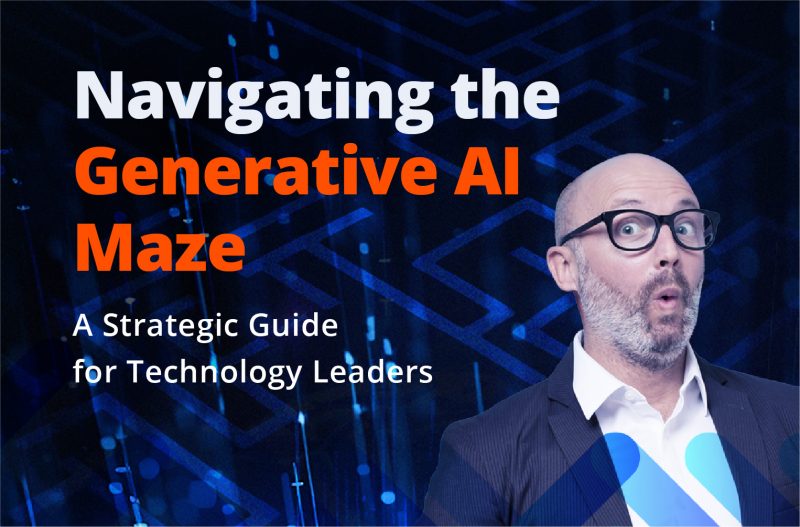Data governance is the process of managing the availability, accessibility, integrity, and security of data in business systems based on internal data standards and regulations that also manage the use of data in the organization. It is a critical practice that ensures data is reliable and trustworthy and that it does not fall into the wrong hands.
Effective data governance is a powerful tool for any organization. It guarantees that data is managed efficiently and that the organization can make better business decisions. Data governance practices are more valuable than any other strategies. It maintains the data operations and keeps track of it all the time. When the data is not governed properly, it will lead to bottlenecks and probably shut down the access and slow down the processes. This certainly makes data governance an asset.
The Essence of Data Governance
Data governance is a crucial process for any organization that deals with data. It involves regulating the availability, accessibility, integrity, and security of data in business systems based on internal data standards and regulations. Effective data governance ensures that data is reliable and trustworthy and does not fall into the wrong hands.
With the rise of data analytics in business decision-making, the risks associated with data usability have also increased. In many cases, a security breach can put the public at risk of losing confidence in the organization, leading to collateral and reputational damage. Therefore, it is essential to implement proper data governance practices to avoid such risks.
Implementing data governance practices can provide several benefits to an organization. It helps maintain data operations and keeps track of data all the time. When data is not governed properly, it can lead to bottlenecks and slow down processes, making data governance an asset.
Data governance helps organizations to make accurate decisions by making data more discoverable. It provides useful insights that help make accurate decisions, which is a great advantage for the organization. When data is treated as a valuable asset, it becomes easy to make an efficient approach to use it.
Data governance is also useful for understanding data within the organization. It helps organizations track what is happening to the data, how and who uses it, and who is accountable for it. This ensures data quality and shows security breach loopholes.
Furthermore, data governance helps increase Return on Investment (ROI) by making better, faster, and more valuable procedures that ensure tremendous development with more certainty. There will be fewer errors, meaning low investments in rectifying the errors, which can be invested in more productive aspects to reach goals faster than ever.
Data Governance in Today’s Enterprises
Data has become a crucial asset for enterprises in the modern business landscape. Organizations increasingly depend on data analytics to enhance efficiency and inform decision-making. However, poor data governance can have serious consequences, including collateral and reputational damage. Security breaches, for instance, are hazardous for government entities and private sector organizations. Such incidents can erode public trust, potentially leading to a loss of competitive advantage.
Effective data governance is essential in this context. It is a powerful tool, with its utility depending on the emphasis placed upon it within the organization. In an era where the importance of data is increasingly recognized, safeguarding sensitive information becomes critical. Unfortunately, businesses sometimes overlook the potential benefits of data, leading to inadequate governance practices.
When data is not properly managed, it can result in operational bottlenecks, restricted access, and slowed processes. Recognizing data as an asset is the first step towards effective governance, integral to strategic planning. Proper data governance practices make data more accessible and insightful, aiding in precise decision-making. This approach helps in utilizing data effectively and ensures its quality and security.
Also Read – 10 Best Data Transformation Tools in 2023
Benefits of Data Governance
Despite its importance, many enterprises only minimally engage with data governance tools, missing out on several key benefits:
- Decision Making: Effective data governance leads to more discoverable data, providing insights that drive accurate decision-making.
- Efficient Approach: Treating data as an asset akin to physical ones is vital. Recognizing its value enables a more efficient use of data.
- Tracking Data Lineage: This aspect involves tracking data usage and origins, enhancing security, and revealing potential breaches.
- Increasing ROI: By adopting these practices, businesses can develop better strategies with fewer errors, leading to cost savings and faster achievement of goals.
Enterprises can integrate open-source, scalable solutions into their systems to implement data governance effectively. Cloud-based platforms are particularly beneficial, offering a range of features at a lower cost than traditional on-premises servers. These solutions save time and money and align with the organization’s data governance strategy.
Various tools and methods are available for achieving data governance, including data discovery, profiling, benchmarking, validation, cleansing, enrichment, and metadata-driven ETL and ELT. Data integration solutions and self-service tools empower those familiar with the data to contribute to stewardship tasks. Documenting data to enhance its relevance, searchability, and accessibility is also crucial.
Implementing Data Governance
To implement data governance in your organization, you must figure out how to best use it. Properly implemented data governance will be a powerful tool for your enterprise. It maintains data operations and keeps track of it all the time. When data is not governed properly, it can lead to bottlenecks and slow processes. Therefore, it is essential to consider data governance as the best strategic implementation.
To achieve governance, open-source, scalable solutions can be easily and affordably incorporated into your firm’s current environment to find your organization’s best data governance method.
A cloud-based platform that provides a wide range of features at a low cost is a good option. On-premises servers aren’t necessary with cloud-based solutions, which saves time and money.
The following resources should prove beneficial to you:
- Discover, profile, and benchmark your data with the help of discovery, profiling, and benchmarking tools. Using the correct tools, a personal data point like a social security number can be automatically detected in a new data set, and an alarm can be emitted.
- Validation, data cleansing, and data enrichment are all methods for improving the quality of your data.
- You can track and trace your data pipelines using metadata-driven ETL, ELT, and data integration solutions.
- Utilize tools that actively review and monitor your data to get control over it.
- Your data should be documented so that metadata may be added to enhance its relevance, searchability, and accessibility.
- Using self-service tools enables the people who know the data the best to contribute to data stewardship chores.
Steps for Achieving Data Governance
Data governance is an essential process for all enterprises that handle data. It ensures that data is reliable, secure, and trustworthy. It also regulates the availability, accessibility, integrity, and security of the data in business systems based on internal data standards and regulations that also manage the use of data in the organization.
1. Establish a Policy
Start by creating a data governance policy that outlines the purpose, scope, and responsibilities of data governance. This policy should be endorsed by senior management and communicated to all relevant stakeholders.
2. Identify Data Stewards
Data stewards manage data within their respective departments. Identify data stewards for each department and provide them with the necessary training and resources to perform their duties effectively.
3. Develop Data Standards
Develop standards that define how data is collected, stored, processed, and shared within the organization. These standards should be aligned with industry best practices and regulatory requirements.
4. Implement Data Management Tools
Implement data management tools that enable you to discover, profile, benchmark, validate, cleanse, enrich, integrate, and monitor your data. These tools should also help you track and trace your data pipelines and document your data with metadata for enhanced relevance, searchability, and accessibility.
5. Establish Processes
Establish processes that enable you to manage data quality, data security, data privacy, and data compliance. These processes should also enable you to resolve data-related issues and incidents promptly and effectively.
6. Monitor and Measure Performance
Monitor and measure the performance of your processes and tools to ensure they deliver the desired outcomes. Use metrics such as data quality, security, privacy, and compliance to track your progress.
7. Continuously Improve
Improve your processes and tools based on stakeholders’ feedback, regulatory requirements changes, and emerging industry best practices. This will ensure that your data governance remains effective and relevant over time.
Also Read- What is Data Analytics Pipeline? Stages, Components and Use-Cases
FAQs
What are the primary responsibilities in data governance?
- Data Steward: A person responsible for managing and maintaining data quality within an organization.
- Data Custodian: A person responsible for managing the storage, security, and access to data.
- Data Owner: A person responsible for the data's accuracy, completeness, and timeliness.
- Data Governance Board: A group responsible for establishing policies, procedures, and standards for data governance.
What is the data governance process?
- Data Identification: Identify the data that needs to be governed.
- Data Classification: Classify the data based on its sensitivity and importance.
- Data Quality: Ensure the data is accurate, complete, and consistent.
- Data Security: Ensure the data is secure and protected from unauthorized access.
- Data Access: Define who can access the data and under what conditions.
- Data Retention: Define how long the data should be retained and when it should be deleted.
How does data governance work with AWS?
- Amazon S3: Amazon S3 can store and manage data securely.
- AWS CloudTrail: AWS CloudTrail can be used to audit and monitor data access.
- AWS Config: AWS Config can be used to ensure that data is compliant with regulatory requirements.
What are the best practices for data governance?
- Establish a Data Governance Framework: Establish a framework that defines the roles, responsibilities, and processes for data governance.
- Define Data Quality Standards: Define standards for data quality to ensure that the data is accurate, complete, and consistent.
- Ensure Data Security: Ensure the data is secure and protected from unauthorized access.
- Implement Data Retention Policies: Define how long the data should be retained and when it should be deleted.
- Regularly Monitor and Audit Data Access: Monitor and audit data access to ensure that it complies with regulatory requirements.
What are the 4 pillars of data governance?
- Data Quality: Ensuring the data is accurate, complete, and consistent.
- Data Security: Ensuring the data is secure and protected from unauthorized access.
- Data Access: Defining who can access the data and under what conditions.
- Data Retention: Defining how long the data should be retained and when it should be deleted.










